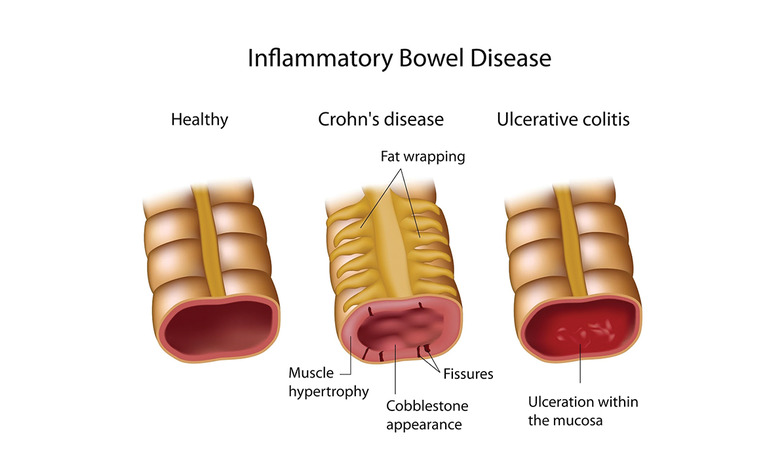Inflammatory bowel disease management is a critical aspect of living well with this chronic condition. Whether you have been recently diagnosed or have been living with IBD for years, implementing effective strategies for inflammatory bowel disease management can significantly improve your quality of life. In this article, we will explore different tips that can help in the inflammatory bowel disease management.
What is meant by inflammatory bowel disease management?
Inflammatory bowel disease or commonly known as IBD is a type of autoimmune disease that leads to inflammation in the gastrointestinal tract. Although there is no known exact cause of the condition. Certain tips on inflammatory bowel disease management can help in long term management of the disease.
What are the inflammatory bowel disease symptoms?
Generally inflammatory bowel disease can cause different symptoms that usually come and go. But they can be both mild and severe. These symptoms include:
- Diarrhea
- Bloating and gas
- Appetite loss
- Blood in stool
- Pain in the abdomen
People with unmanaged inflammatory bowel disease can be at a high risk of malnutrition, vitamin deficiency, and weight loss, these reasons make inflammatory bowel disease management important.
What are the various types of inflammatory bowel disease?
There are three major types of inflammatory bowel disease, they include:
Crohn’s disease:
In the digestive tract, Crohn’s disease produces pain and swelling. Any area, including the mouth and anus, is susceptible. The organs most typically impacted are the small intestine and upper large intestine.
Ulcerative colitis:
The large intestine (colon and rectum) experiences swelling and sores (ulcers) due to ulcerative colitis.
Microscopic colitis:
Intestinal inflammation brought on by microscopic colitis can only be seen under a microscope.
What are the 7 tips to manage inflammatory bowel disease?
Inflammatory bowel disease needs to be managed for lifetime as they tend to recur quite quickly. As there is no definite cure, the condition can be efficiently managed with certain lifestyle tips.
Here are the 7 tips that can help in inflammatory bowel disease management:
Educate yourself about inflammatory bowel disease management:
Knowledge is power, especially when it comes to managing a complex condition like IBD. Take the time to educate yourself about the different types of IBD, such as Crohn’s disease and ulcerative colitis, and understand how they affect your digestive system. Learning about the causes, symptoms, and triggers of inflammatory bowel disease can empower you to make informed decisions about your health.
Knowledge of emerging therapies and management techniques can help you work collaboratively with your autoimmune disease doctor to tailor a treatment plan that suits your unique needs.
Find the best diet that works:
Dietary recommendations can vary greatly depending on where in your interstitial system the inflammatory issue is present. You should talk to your gastroenterologist about this.
By choosing a healthy diet:
- Taking a healthy diet can help in the overall well-being of the individual.
- Reduce the amount of sodas you intake.
Working with a nutritionist who specializes in inflammatory bowel disease is a good idea. The secret is to figure out what functions well for you personally and what doesn’t. One patient may experience flare-ups from a certain diet, another patient may benefit greatly from it.
Adhere to medications and treatment plans:
Inflammatory bowel disease management often involves medications to control inflammation and manage symptoms. It’s crucial to adhere to your prescribed treatment plan religiously. Missing dosage or discontinuing medications without consulting your healthcare team can lead to disease flare and complications.
Be open with your healthcare provider about any side effects or concerns you may have regarding your medications. They can work with you to adjust your treatment plan if necessary, ensuring that it remains effective.
Monitor diet and nutrition:
Diet plays a significant role in inflammatory bowel disease management. While dietary triggers and sensitivities can vary from person to person, many individuals with IBD find relief by making specific dietary adjustments.
Consider speaking with a dietitian who can help design your diet plan. They can help you find triggered foods, create a personalized diet plan, and ensure you receive adequate nutrition. Common dietary strategies for managing inflammatory bowel disease include certain foods like spicy or greasy foods.
Manage stress and emotional health:
Inflammatory bowel disease management is not solely about physical health; it also involves addressing emotional well-being. Living with a chronic condition like IBD can be emotionally challenging, leading to stress, anxiety, and depression.
Practicing stress-reduction techniques, such as mindfulness, meditation, and yoga, can help you manage emotional stress. Additionally, consider joining support groups or seeking therapy to connect with others who understand your experiences and to develop coping strategies for emotional challenges.
Prioritize regular exercise:
Physical activity is a vital component of inflammatory bowel disease management. Regular exercise can help reduce inflammation, improve overall health, and alleviate some of the symptoms associated with IBD.
Engage in activities that you enjoy and that align with your current physical abilities. Whether it’s walking, swimming, or gentle yoga, finding a form of exercise that you can consistently incorporate into your routine can have a positive impact on your overall health and inflammatory bowel disease management.
Make a note of your symptoms:
Maintaining a symptom journal can be a valuable tool in inflammatory bowel disease management. Record your daily symptoms, including bowel movements, abdominal pain, fatigue, and any potential triggers like specific foods or stressors.
A symptom journal can help you identify patterns and potential triggers for flares, allowing you to make informed decisions about your lifestyle, diet, and medication adjustments. It can also provide valuable insights during discussions with your healthcare team.
Important takeaway:
Inflammatory bowel disease management is an ongoing journey that requires dedication, education, and a collaborative approach with your healthcare team. By educating yourself about your condition, building a strong support network, adhering to treatment plans, monitoring your diet and nutrition, managing stress, staying active, and keeping a symptom journal, you can take control of your health and lead a fulfilling life while managing inflammatory bowel disease. Reach out to an immunology hospital for inflammatory bowel disease management.


 Home
Home









